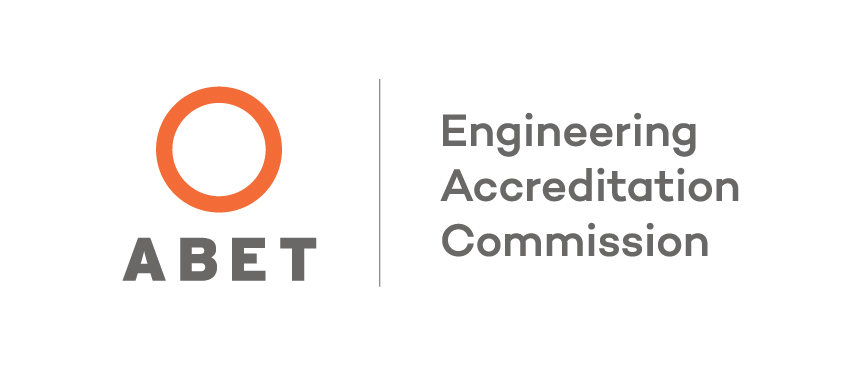ABET Accreditation
The Electrical and Computer Engineering Program at Lafayette College is accredited by the Engineering Accreditation Commission of ABET, www.abet.org.
Program Mission Statement
To be one of the nation’s premier undergraduate ECE departments dedicated to thorough technical preparation, continuous development of professional awareness, and a heightened sense of social responsibility of our students.
I-People
Bring together students of high ability and a faculty composed of teacher-scholars in the major fields of Electrical and Computer Engineering for the purpose of learning through study, inquiry, discourse, and discovery.
II-Program
Maintain a continuous evolution of curriculum, pedagogical practices, and resources to educate students in the guiding principles of the engineering profession and the best practices in both electrical and computer engineering.
III-Learning Environment
Create an interactive environment between students and faculty that fosters a dedication to learning and an appreciation of both the history and future of the discipline.
Program Educational Objectives
Long-term objectives are developed such that graduates:
PEO1-Have the ability to continually educate themselves and communicate and work effectively with others having different responsibilities.
PEO2-Can adapt to changing professional assignments/challenges
PEO3-Can apply their engineering education to solving a broad range of inter-/multi-disciplinary problems.
PEO4-Have the background, ability, and motivation to engage in professional, public, and community service.
PEO5-Have an appreciation of business enterprise, entrepreneurship, technology management, and social and legal issues.
Student Outcomes
The ECE curriculum is designed so that, upon graduation, students have:
- an ability to identify, formulate, and solve complex engineering problems by applying principles of engineering, science, and mathematics.
- an ability to apply engineering design to produce solutions that meet specified needs with consideration of public health, safety, and welfare, as well as global, cultural, social, environmental, and economic factors.
- an ability to communicate effectively with a range of audiences.
- an ability to recognize ethical and professional responsibilities in engineering situations and make informed judgments, which must consider the impact of engineering solutions in global, economic, environmental, and societal contexts.
- an ability to function effectively on a team whose members together provide leadership, create a collaborative and inclusive environment, establish goals, plan tasks, and meet objectives.
- an ability to develop and conduct appropriate experimentation, analyze and interpret data, and use engineering judgment to draw conclusions.
- an ability to acquire and apply new knowledge as needed, using appropriate learning strategies.
Enrollment and Graduation Data
Five Year Enrollment and graduation data for the B.S. in Electrical and Computer Engineering program is available on the Lafayette Engineering Division website.
